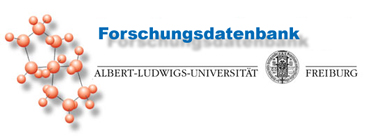| [Zurück zum Forschungsbericht] |
 |

A multicenter study of the evolution and spread of NDM-producing bacteria across bacterial clones and species
Projektbeschreibung:Abstract A multicenter study of the evolution and spread of NDM-producing bacteria across bacterial clones and species Background: The carbapenemases are β-lactamase enzymes that confer resistance to all of the β-lactam antimicrobial classes, including carbapenems, the "agents of last resort". Hence, carbapenemase-producing Enterobacteriaceae (CPE) are a critical threat to public health worldwide. Carbapenemase genes may disseminate either by spread of an epidemic bacterial clone or via horizontal transfer of the gene between different bacteria of the same phylogenetic family (e.g., Enterobacteriaceae). The carbapenemase NDM is one of the most common worldwide, but its evolution and modes of spread in Israel are mostly unknown. A possible explanation is that there has been an inter-family exchange of the blaNDM gene between Acinetobacter baumannii and Enterobacteriaceae. However, inter-family horizontal gene transfer (HGT)has never been traced epidemiologically, nor has it been reported in other antimicrobial resistance (AMR) genes. Objectives: 1) To study the transmission dynamics of the blaNDM gene within each bacterial family, Enterobacteriaceae and A. baumannii, using a combined epidemiological-molecular approach; 2) to study the possibility that A. baumannii serves as a source for transmission of the blaNDM gene to Enterobacteriaceae by HGT; 3) to develop a network analysis of transmission of the blaNDM gene. Methods: This will be an observational, multicenter, molecular-microbiological study performed in three consecutive stages: A) identification of patients and collection of isolates; B) molecular analysis of isolates and a descriptive epidemiological study; C) network analysis of transmission of the blaNDM gene. The first stage of the study will be conducted over 18 months in three tertiary-care centers in the three major cities in Israel: a) Tel-Aviv Sourasky Medical Center (TASMC); b) Rambam Medical Center (RMC); 3) Sha'are Zedek Medical Center (SZMC). Clinical and surveillance cultures will be collected according to the routine infection control and clinical practices at each center and will be analyzed for the presence of NDM-producing enterobacteriaceae (NDME) and A. baumannii (NDMAb). All NDME and NDMAb isolates will be studied by whole genome sequencing (WGS) and the data will be used to define the clonal structure and the blaNDM-related mobile genetic elements (MGE). Transmission events (TE) of NDME/NDMAb will be defined according to combined epidemiological and molecular criteria: 1) Epidemiological: a) the suspected NDME/NDMAb infected patients; and 2) a functional in-vitro study of the conjugation efficiency of the blaNDM-harboring plasmids in and between bacterial species and families. Novelty and importance of the study: The novelty of the proposed study is that, in addition to comparing clonal spread and HGT-mediated transfer of a carbapenemase gene within one bacterial family, we will analyze the transmission within and between two phylogenetic bacterial families. We will incorporate a multi-layer approach of studying AMR transmission: molecular-epidemiological investigation, in vitro study of mechanisms of transmission, characterization of clinical features, and network analysis. Our findings will contribute basic science and will guide interventions to prevent the spread of AMR pathogens. The blaNDM is an ideal AMR gene candidate for this study for the following reasons: 1) it has similar prevalence in the two bacterial populations; 2) it has a distinct resistance phenotype that is easy to identify; 3) it has significant clinical and epidemiological importance.Projektlaufzeit:
Ansprechpartner: Grundmann H
Tel: 82050
Email: hajo.grundmann@uniklinik-freiburg.de
Projektbeginn: 2018Projektleitung:
Projektende: 2020
Grundmann HFinanzierung:
Stellvertretung: Reuter S
Albert-Ludwigs-Universität Freiburg
Institut für Infektionsprävention und Krankenhaushygiene
Breisacher Str. 115 B
79106 Freiburg
Telefon: 0761-270-82060
Fax: 0761-270-82030
http://www.uniklinik-freiburg.de/iuk/live/index.html
- German Israeli Foundation for Scientific Research, Stiftung
Aktueller Forschungsbericht